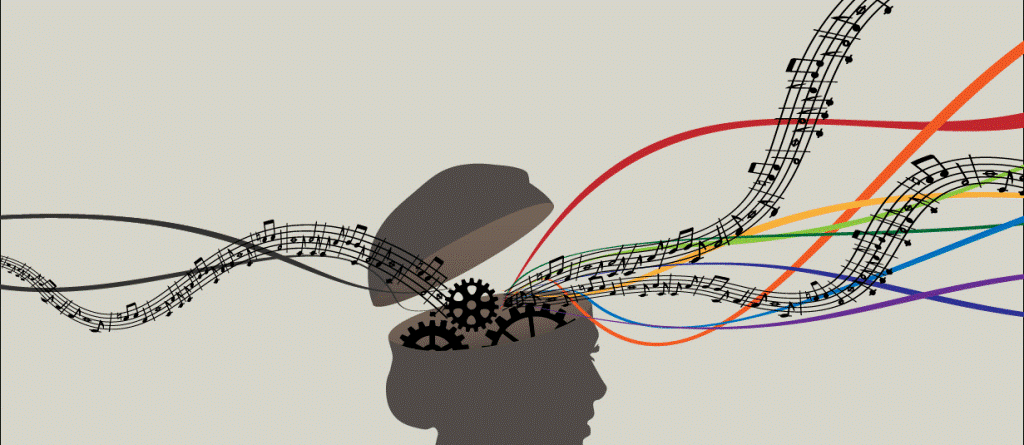Music is magic that puts Hogwarts to shame; music is said to have the power to name the unnamable and communicate the unknowable.
But magic, literature, and philosophy apart, Music Therapy is a legit Allied Health Profession, and there is no arguing if it has any health benefits, the question is, how potent can it be!
Music Therapy is proven to work like a charm for all age groups alike, including the old, adolescents, premature babies, and infants in cardiac ICUs; while a professional Music Therapist is no doctor, but someone proficient in voice, guitar, piano, and percussion[i], and in their principal instrument – and above all, trained and passionate.
The Healing Power of Music comes from both the tranquility it buys one’s mind and the very basic unit of music – vibrations. Music professor Lee Bartel once conducted a study under the University of Toronto, in collaboration with several scientists, only to find that sound vibrations absorbed through the body can help ease the symptoms of Parkinson’s disease, fibromyalgia, and depression. [ii]
This incomprehensive-but-working field of ‘medical practice’ has grown to suit the rising needs. Hence it can address cognitive, academic, emotional, psychological, behavioral, social, physiological (sensory, motor, pain, neurological, and other physical systems), spiritual, and aesthetic aspects, as per authentic sources. [iii] [iv] [v] [vi]
Music Therapy has been a mental asylum staple for centuries now, in some form or the other, and to some degree. But it is today prevalent in Autistic, Cardiac, and Oncological conditions, as well as in Dementia and Aphasia and other neurological conditions.
1. First things first, music helps you feel good – and that’s not just made up in your head!
Music works in a way that it can influence brain waves, or the vibrations of the brain themselves. A study that was headed towards finding relaxing music for college students ended up finding that upbeat music has got fortuitous effects on brain waves. By playing different kinds of music to people, and analyzing their brain’s vibrations, you can see that “faster beats bringing sharper concentration and more alert thinking, and a slower tempo promoting a calm, meditative state”.[vii] This testifies better that music can be used directly to influence the functioning of one’s brain.
Rock ‘n’ Roll or Symphony, music always brings positivity to one’s mind, unless there is a personal memory that sets it otherwise. So, music is ‘step one’ to “Bye-bye Anxiety”. It can also help you keep off depression, [viii] obsessive-compulsive disorder or OCD, schizophrenia[ix], etc.
2. Autotune:
Music is found to influence the autonomic nervous system[x], which governs over the bodily functions that are not consciously directed. Most internal organs and body functions are thus set on autotune. These may include breathing, the heartbeat, digestive processes, electrolyte balance, pupillary response, urination and defecation, body temperature, sweating, and even sexual response.[xi] [xii]
The list sounds like a one-stop-shop, and one may dare say that music just about guarantees good spirits and puts you in the blushing pink. Music also releases the feel-good hormone endorphin [xiii]into the bloodstream, making you feel at ease, happy, and satisfied easily – so it is on the up and up.
3. Pressure Valve release:
The soul, of course, always cures in music; but what of the heart? A 2015 study amongst stressed university students found that music therapy has a favorable impact on both the nervous and cardiovascular systems. When the nerves are good and so is the heart, then the blood pressure is bound to stabilize.
Furthermore, the said study that was published under the Journal of Alternative and Complementary Medicine in 2016, continued to state that music therapy brings down the risk of stroke, boosts immunity, eases tensed muscles, and does more. [xiv]
4. Parkinson’s and Alzheimer’s –like conditions:
About six years ago a group of Italian Scientists analyzed the effects of music in neurological conditions (that affect the elderly the most), like Multiple Sclerosis, Amyotrophic Lateral Sclerosis/motor neuron disease, Chronic quadriplegia, Parkinson’s Disease (PD), Alzheimer’s Disease (AD), and Acquired Brain dysfunctions[xv]. Music is seen uplifting the spirits of the patients and alleviating their conditions to moderate degrees. And then in hopeless conditions, after all, something is everything.
5. Hospital-Heroism:
Music is a Hero to hospitals. Period.
It is now well-known that music helps the bed-ridden and hospitalized [xvi]remarkably; but little did we know until very recently that music help to calm a patient before surgery and heal after the procedure.
And now that we know, it is a staple in many surgical and post-natal wards.
6. MT helps people who find it hard to be understood:
Be it because of conditions like Autism, or just the situations, music offers a chance of self-expression to all. Unlike popular belief, music is not limited to just the ears, and is a multi-sensory experience[xvii]. Music is found to enhance communication and communicative skills in people who are usually not the very best at expressing themselves to others.
Other Conditions in which MT helps may include developmental disorders, trauma, grief and loss issues, chronic and acute pain, everyday life’s stress, sensory impairments, labor, delivery, and both emotional and spiritual crisis.
Is Sound Therapy the same?
No. Sound therapy, also known alternatively as Vibroacoustic therapy (or VAT) or Acoustic Wave Therapy (AWT) is different. Music Therapy involves listening to music (requirement-specific or otherwise) that is either pre-made or personalized for the benefits of the body and mind. Everything gets working through the ears and brain.
But Acoustic Wave Therapy involves passing sound wave signals directly into the body and works at a target position.
While the theory, working, and procedures differ, we could see one thing in common. Both techniques acknowledge the intrinsic, obvious truth that sound and music are life itself.
I’m perfectly healthy / having a condition. Is Music Therapy good for me?
This is the relevant question, and the answer is a booming, sonorous yes!
There is no person or condition that cannot benefit from music therapy. It guarantees emotional well-being, social expression, neurological health, heart health, stable breath, immune power, and mental health.
Jóhann Jóhannsson was right when he said, “When music is needed, it’s really there and it serves a purpose.”
[i] Music Therapist Career Description, Salary & Career Outlook – Careers in Music
[ii] https://soundhealingcenter.com/shrf/vibroacoustic-therapy-for-parkinsons-fibromyalgia-alzheimers-and-depression-2/#:~:text=At%20its%20core%2C%20music%20is%20sound%2C%20and%20sound,the%20symptoms%20of%20Parkinson%27s%20disease%2C%20fibromyalgia%20and%20depression.
[iii] Music therapy – Wikipedia
[iv] Gaston, E. Thayer (1968). “Man and music”. In Gaston, E. Thayer (ed.). Music in Therapy. New York: The Macmillan Company. pp. 7–29.
[v] Chase, Kristen M. (2002). The Music Therapy Assessment Handbook. Columbus, MO: Southern Pen Publishers.
[vi] Gfeller, Kate E. (2008). “Music: A human phenomenon and therapeutic tool”. In Davis, William B.; Gfeller, Kate E.; Thaut, Michael H. (eds.). An Introduction to Music Therapy: Theory and Practice (3 ed.). Silver Spring, MD: The American Music Therapy Association. pp. 41–75. ISBN 978-1884914201.
[vii] Wang W-C. A study of the type and characteristics of relaxing music for college students. Proc Mtgs Acoust. 2014;21:035001. doi:10.1121/1.4902001.
[viii] Aalbers S, Fusar-Poli L, Freeman RE, et al. Music therapy for depression. Cochrane Database Syst Rev. 2017;11(11):CD004517. doi:10.1002/14651858.CD004517.pub3
[ix] https://www.ncbi.nlm.nih.gov/pubmed/28104067
[x] Ellis RJ, Thayer JF. Music and autonomic nervous system (dys)function. Music Percept. 2010;27(4):317–326. doi:10.1525/mp.2010.27.4.317
[xi] Bankenahally R, Krovvidi H. Autonomic nervous system: anatomy, physiology, and relevance in anaesthesia and critical care medicine. BJA Education. 2016;16(11):381-387. doi:10.1093/bjaed/mkw011
[xii] Kreibig SD. Autonomic nervous system activity in emotion: A review. Biol Psychol. 2010;84(3):394-421. doi:10.1016/j.biopsycho.2010.03.010
[xiii] https://petersonfamilyfoundation.org/music-therapy/science-music-therapy/#:~:text=Endorphins%3A%20As%20stated%20above%2C%20music%20can%20release%20endorphins,transmitting%20messages%20to%20the%20rest%20of%20the%20body.
[xiv] Lee KS, Jeong HC, Yim JE, Jeon MY. Effects of music therapy on the cardiovascular and autonomic nervous system in stress-induced university students: a randomized controlled trial. J Altern Complement Med. 2016;22(1):59-65. doi:10.1089/acm.2015.0079
[xv] Raglio, A., Attardo, L., Gontero, G., Rollino, S., Groppo, E., & Granieri, E. (2015). Effects of music and music therapy on mood in neurological patients. World journal of psychiatry, 5(1), 68–78. https://doi.org/10.5498/wjp.v5.i1.68
[xvi] Gallagher, L. M., Gardner, V., Bates, D., Mason, S., Nemecek, J., DiFiore, J. B., Bena, J., Li, M., & Bethoux, F. (2018). Impact of Music Therapy on Hospitalized Patients Post-Elective Orthopaedic Surgery: A Randomized Controlled Trial. Orthopedic nursing, 37(2), 124–133. https://doi.org/10.1097/NOR.0000000000000432


Everything is very open with a really clear clarification of the issues. It was truly informative. Your site is very useful. Thanks for sharing!
Oh my goodness! Amazing article dude! Thanks, However I am encountering difficulties with your RSS. I don’t understand why I can’t subscribe to it. Is there anybody having identical RSS issues? Anyone that knows the answer will you kindly respond? Thanks!!